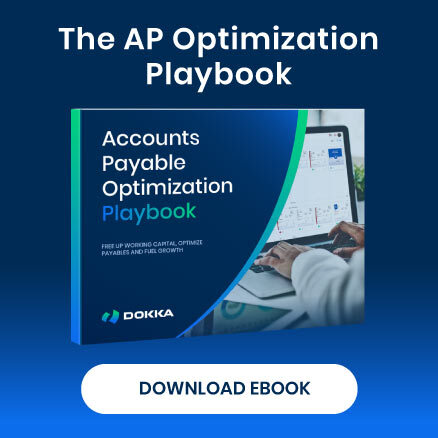This post is the second edition of our ‘The Rise of the AI-Powered CFO’ series.
As the pace of business is accelerating, CFOs are increasingly turning to artificial intelligence (AI) to enhance the efficiency and accuracy of financial close processes. In particular, the role of the CFO has been transformed by the rise of AI, with automation and machine learning enabling financial close processes to be completed faster and more accurately than ever before.
The end-of-period financial close process is a critical task, demanding accuracy, speed, and compliance. Without the support of AI, CFOs face significant challenges such as manual processes, potential errors, and the significant time consumed by these operations. The integration of AI technologies is revolutionizing traditional practices, promising a new era of efficiency and strategic insight.
In this article we will explore the pivotal role AI plays in revolutionizing the financial close process and how it extends its benefits beyond, into broader financial management practices.
The Challenges of the Traditional Close Process
The traditional financial close process is a series of tasks that must be completed at the end of each accounting period to finalize and report on a company’s financial performance. These processes involve various stakeholders, including finance teams, auditors, and senior management. The process typically includes several manual tasks, such as data collection, reconciliation, and reporting.
One of the main challenges of traditional financial close process is the potential for human error. As these tasks are manual, they are highly susceptible to mistakes that can have significant consequences for a company’s financial statements. Additionally, the manual nature of these processes results in longer closing cycles, leading to delayed business decisions and missed opportunities. The lack of automation also means that finance teams spend a considerable amount of time on low-value tasks instead of focusing on more strategic activities.
Moreover, traditional approach is becoming increasingly complex due to the growing volume and variety of data that must be processed. As companies expand their operations and adopt new technologies, the amount of data generated is increasing exponentially, posing challenges for human resources to manage effectively.

The Role of AI in Transforming Financial Close Processes
Now, let’s talk about how AI fits into the picture of modern CFOs.
The rise of AI has enabled CFOs to overcome these challenges through automation of various tasks and provision of advanced analytics capabilities. AI-powered tools can streamline financial close processes, reduce errors, and accelerate the closing cycle. Additionally, AI can analyze massive amounts of data in real-time, providing valuable insights into a company’s overall financial performance.
AI technologies, such as machine learning algorithms and natural language processing, can sift through vast amounts of financial data at unprecedented speeds. This capability enables CFOs to identify discrepancies, anomalies, or trends much more rapidly than traditional methods.
One of the key benefits of AI is its ability to automate data collection from various sources and formats. By leveraging machine learning algorithms, AI can rapidly gather data from multiple systems and reconcile it with minimal human intervention.
How AI Can Assist CFOs In The Financial Close Process
1) Automating Routine Tasks
- The role of AI: AI tools, particularly those utilizing machine learning (ML) and robotic process automation (RPA), can automate tasks such as data entry, transaction matching, and reconciliations. These tools learn from historical data to recognize patterns, enabling them to process transactions and match entries much faster than manual processes.
- How it works: AI-powered software can do the routine manual data entry and processing tasks for you. Machine learning algorithms improve over time, understanding the nuances of financial transactions and adapting to changes in data formats or transaction types without explicit programming.
2) Improving Accuracy
- The role of AI: AI algorithms are excellent at identifying discrepancies and anomalies in vast datasets. They can flag transactions that deviate from established patterns, suggesting possible errors or fraudulent activity.
- How it works: Using techniques such as anomaly detection, AI models analyze historical transaction data to learn what normal activity looks like. When a transaction falls outside these parameters, the system flags it for review. This process reduces errors and improves the integrity of financial statements.
3) Enhancing Data Analysis
- The role of AI: AI can process and analyze large volumes of data to extract insights, identify trends, and even predict future financial outcomes based on historical data.
- How it works: Through predictive analytics and data mining, AI algorithms identify trends and patterns in the financial data. This can inform areas such as revenue forecasting, expense analysis, and identifying potential areas for cost savings or investment.
4) Predictive Analytics
- The role of AI: AI leverages historical data to forecast future financial conditions, performance, and the impact of various strategic decisions.
- How it works: Using historical financial data, market conditions, and other relevant external data sources, AI models can forecast future trends and outcomes with a degree of accuracy previously unattainable through traditional methods. These forecasts help in budgeting, financial planning, and strategic decision-making.
5) Real-time Reporting
- The role of AI: AI enables the processing of financial data in real-time, providing CFOs with up-to-the-minute insights into their organization’s financial status.
- How it works: By continuously analyzing transactional data as it comes in, AI solutions can provide real-time dashboards and alerts. This capability allows CFOs to make informed decisions quickly and identify issues as they arise, rather than waiting for the end of a financial period.
6) Compliance Monitoring
- The role of AI: AI systems can monitor changes in regulatory standards and ensure that financial reporting adheres to the latest compliance requirements.
- How it works: AI models trained on regulatory texts can interpret changes in legislation and automatically adjust reporting processes to remain compliant. This proactive approach reduces the risk of penalties for non-compliance.
7) Enhancing Internal Controls
- The role of AI: AI can strengthen internal controls by continuously monitoring for signs of fraud, errors, or inconsistencies across financial transactions.
- How it works: By analyzing patterns of behavior and transaction data, AI systems can identify activities that deviate from the norm, potentially indicating fraud or errors. This continuous monitoring is more efficient and effective than periodic manual audits.
Lastly, it’s important to keep in mind that implementing AI in the financial close process does not eliminate the need for skilled finance professionals. Instead, it redefines their roles by freeing them from manual, repetitive tasks and allowing them to focus on more strategic activities. The collaboration between AI technologies and finance professionals fosters a more innovative, efficient finance department capable of driving organizational growth.
The Future of Financial Close with AI
Looking ahead, the potential advancements in AI promise to further transform the financial close process. Innovations in AI could result in even more sophisticated analytics, deeper financial insights, and more comprehensive automation. As these technologies evolve, CFOs must stay informed and adaptable, embracing new tools to maintain a competitive edge.
The future of financial close involves not only automating tasks but also leveraging AI to strategize and lead with insight. So, integrating AI into the financial close process is not merely a trend but an essential step towards a more efficient and effective future for finance.
Extending the Benefits of AI Beyond Financial Close Process
The benefits of AI are not limited to just financial close process. CFOs can leverage AI-powered tools to transform broader financial management practices, including budgeting, forecasting, and planning.
Furthermore, with its ability to analyze vast amounts of data, AI can identify patterns and trends that humans may not be able to detect. This capability enables CFOs to proactively address potential risks and make more informed decisions.
The rise of AI has transformed the role of the CFO and revolutionized traditional financial close processes. By automating tasks and providing advanced analytics capabilities, AI enables finance teams to operate more efficiently and strategically. Moreover, AI extends its benefits beyond financial close processes into broader financial management practices, enabling CFOs to make faster and more informed decisions to drive business growth. With the continued development and adoption of AI, we can expect to see even more significant advancements in financial management processes in the future.








